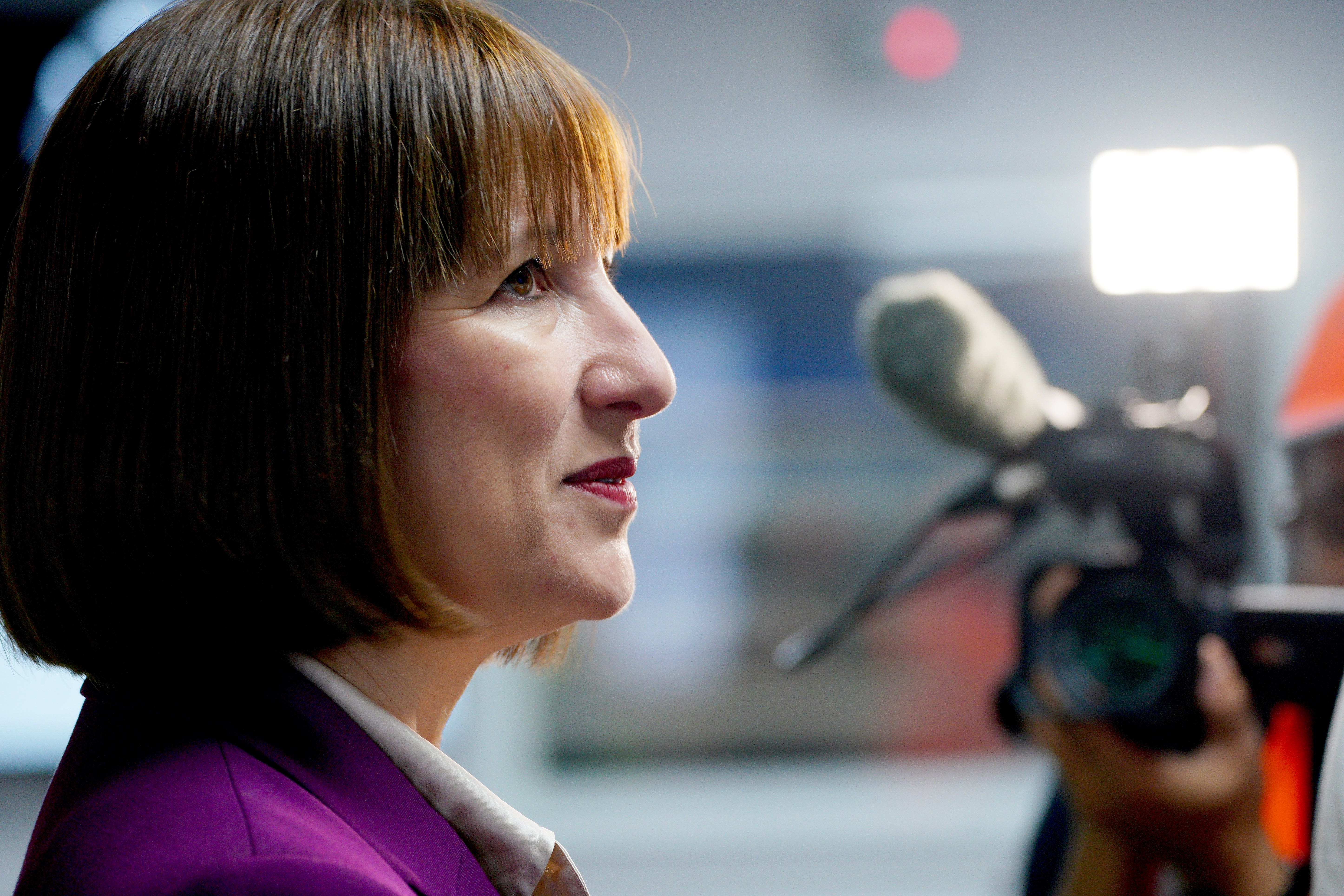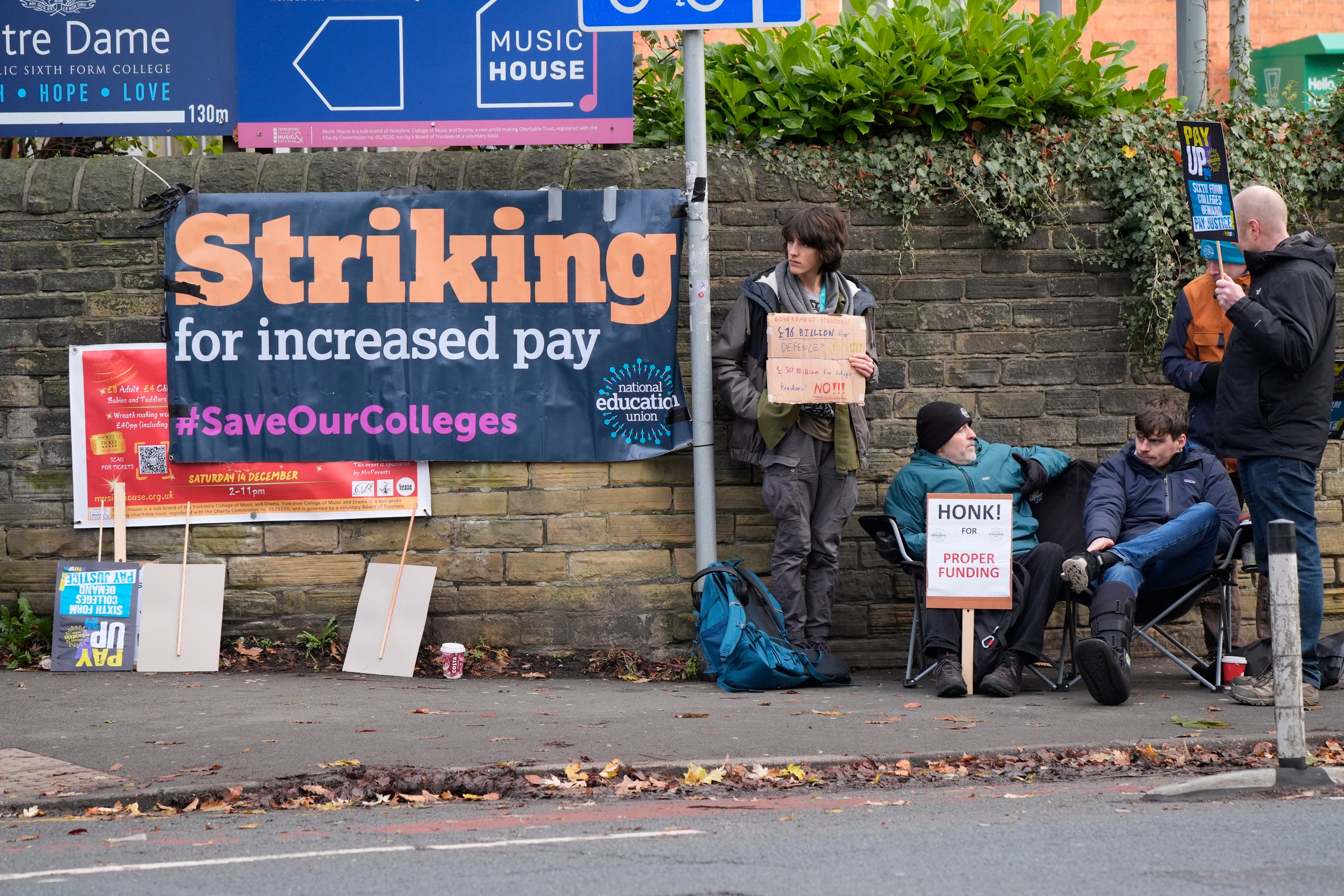
Unions representing teachers, NHS nurses and civil servants have warned the government of fresh industrial action over their “deeply offensive” 2.8 per cent pay rise proposal.
This is despite inflation being predicted to average 2.5 per cent this year and 2.6 per cent next year, according to forecasts from the Office for Budget Responsibility.
Chancellor Rachel Reeves unveiled the plans on Tuesday evening and said that the 0.2 per cent rise above inflation was all that could be offered due to the challenging financial circumstances, but was swiftly met with criticism from unions.
The British Medical Association said the Government showed a “poor grasp” of unresolved issues from two years of industrial action, while the National Education Union’s chief said teachers were “putting the Government on notice” that the proposed increase “won’t do”.

The pay recommendations came after Chancellor Rachel Reeves called for every Government department to cut costs by 5 per cent, as she started work on a sweeping multi-year spending review to be published in 2025.
Independent pay review bodies will consider the proposals for pay rises for teachers, NHS workers and senior civil servants.
The Department of Health said it viewed 2.8 per cent as a “reasonable amount” to set aside, in its recommendations to the NHS Pay Review Body and the Doctors’ and Dentists’ Remuneration Board remit groups.
A 2.8 per cent pay rise for teachers in 2025/26 would “maintain the competitiveness of teachers’ pay despite the challenging financial backdrop the Government is facing”, the Department for Education said.
The Cabinet Office also suggested pay increases for senior civil servants should be kept to no more than 2.8 per cent.
Paul Johnson, director of the influential economics think tank the Institute for Fiscal Studies (IFS), said it was “not a bad ballpark figure” and feels “just about affordable” given the Government’s public spending plans.
The downside, he said, is that public sector workers have lost out since 2010 and unions will be upset that this is not making up the gap, he told Sky News’ Politics Hub with Sophy Ridge.
“But given the constraints facing the Chancellor I think it’s pretty hard to argue for more for public sector pay when public sector services … are under real strain,” he said.
Unions expressed their disappointment in the recommendations, with some hinting they could be willing to launch industrial action.

The Royal College of Nursing general secretary and chief executive called for “open direct talks now” to avoid “further escalation to disputes and ballots”.
Professor Nicola Ranger said: “The Government has today told nursing staff they are worth as little as £2 extra a day, less than the price of a coffee.
“Nursing is in crisis – there are fewer joining and too many experienced professionals leaving. This is deeply offensive to nursing staff, detrimental to their patients and contradictory to hopes of rebuilding the NHS.
“The public understands the value of nursing and they know that meaningful reform of the NHS requires addressing the crisis in nursing.
“We pulled out of the Pay Review Body process, alongside other unions, because it is not the route to address the current crisis.
“That has been demonstrated today.
“Fair pay must be matched by structural reform. Let’s open direct talks now and avoid further escalation to disputes and ballots – I have said that directly to government today.”
Professor Philip Banfield, chairman of the British Medical Association’s council, urged the sector’s pay review body to “show it is now truly independent”.
“For this Government to give evidence to the doctors’ and dentists’ pay review body (DDRB) believing a 2.8 per cent pay rise is enough, indicates a poor grasp of the unresolved issues from two years of industrial action,” he said.
He said the proposal is far below the current rate of inflation and that the Government was “under no illusion” when doctors accepted pay offers in the summer that there was a “very real risk of further industrial action” if “pay erosion” was not addressed in future pay rounds.
“This sub-inflationary suggestion from the current Government serves as a test to the DDRB.
“The BMA expects it to take this opportunity to show it is now truly independent, to take an objective view of the evidence it receives from all parties, not just the Government, and to make an offer that reflects the value of doctors’ skills and expertise in a global market, and that moves them visibly further along the path to full pay restoration.”
The NEU’s general secretary, Daniel Kebede, said teachers’ pay had been cut by more than one-fifth in real terms since 2010.
“Along with sky-high workload, the pay cuts have resulted in a devastating recruitment and retention crisis. Teacher shortages across the school system hit pupils and parents too.
“A 2.8 per cent increase is likely to be below inflation and behind wage increases in the wider economy. This will only deepen the crisis in education.”
In a hint that there could be a return to industrial action he added: “NEU members fought to win the pay increases of 2023 and 2024.
“We are putting the Government on notice. Our members care deeply about education and feel the depth of the crisis. This won’t do.”
The offer for teachers is the “exact opposite of fixing the foundations” and will result in bigger class sizes and more cuts to the curriculum, Pepe Di’Iasio, general secretary of the Association of School and College Leaders, said:
“The inadequacy of the proposed pay award is compounded by the Government’s intention that schools should foot the bill out of their existing allocations.
“Given that per-pupil funding will increase on average by less than 1 per cent next year, and the Government’s proposal is for an unfunded 2.8% pay award, it is obvious that this is in fact an announcement of further school cuts.”
Paul Whiteman, general secretary at school leaders’ union NAHT, said: This recommendation falls far short of what is needed to restore the competitiveness of the teaching profession, to enable it to retain experienced professionals and attract new talent.
Unison head of health Helga Pile said: “The Government has inherited a financial mess from its predecessors, but this is not what NHS workers wanted to hear.
“Staff are crucial in turning around the fortunes of the NHS. Improving performance is a key Government pledge, but the pay rise proposed is barely above the cost of living.”







